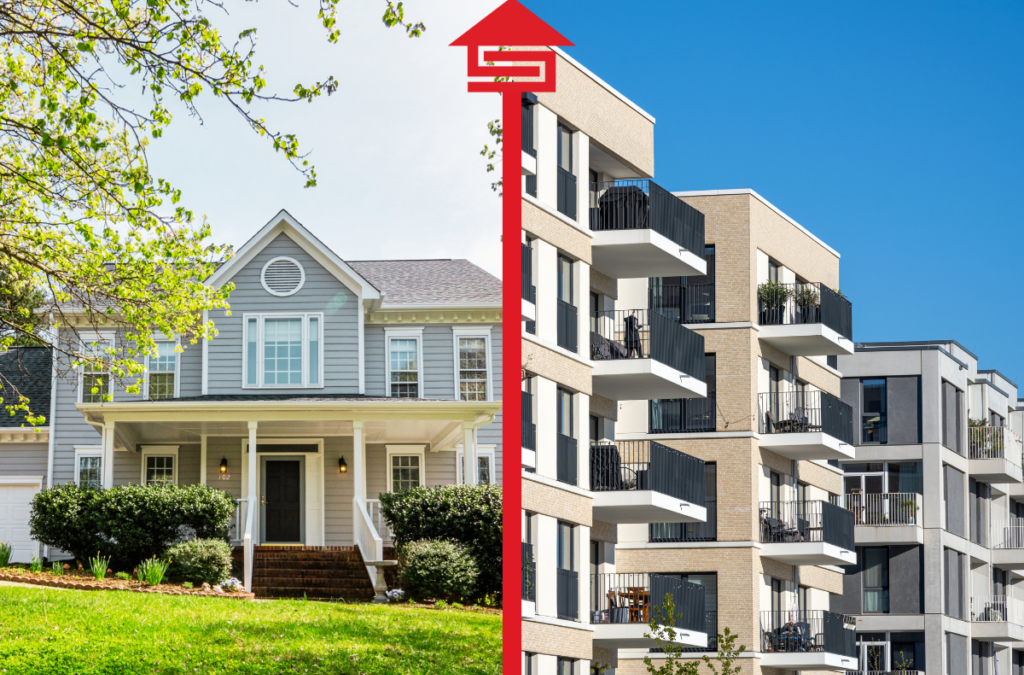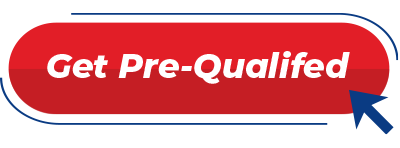by First Integrity Team Supreme Lending | May 10, 2025
Don’t let these condo loan myths get in your way of homeownership!

Condominiums can be an appealing alternative to traditional homes, offering perks like lower maintenance, community features, and prime locations. However, some potential homebuyers may hesitate to pursue applying for a condo loan, often due to misconceptions that it’s more challenging to secure a mortgage than a single-family home.
While getting a condo loan involves a few additional considerations, it isn’t as daunting as it may seem. With the right lender on your side, you can move through the process smoothly and confidently. At Supreme Lending, our dedicated condo team specializes in handling all the details. This will ensure your loan process is seamless from start to finish.
How Condo Financing Differs
When you apply for a mortgage on a single-family home, the lender’s primary focus is on your financing qualifications and the property itself. Condo financing, on the other hand, involves an additional layer of approval—not just on the individual unit but the overall condo complex. Lenders will review factors including:
- Homeowners Association (HOA). The financial health of the condo association and the condition of the property are evaluated to ensure the community is well-managed.
- Occupancy Rates. Lenders may require a certain percentage of units to be owner-occupied to reduce potential risks associated with high rental occupancy.
- Legal Status. The lender will also ensure there are no legal issues or disputes involving the condo association that may impact the financing process.
- Insurance Coverage. There are specific insurance requirements for the building and the association, which lenders review as part of the approval process.
These steps may add some complexity but are designed to protect both the buyer and lender. Now let’s debunk these common condo loan myths.
Myth #1 – Condo Loans Are Too Complicated
Condo loans may involve a few more steps than financing a single-family home, however they’re not as complicated as you might think. When you apply, you’ll provide basic details about the condo property, including the address. Then our specialized team at Supreme Lending will take it from there to review the complex. In some cases, you may even qualify for a limited review, which requires less paperwork and verification.
Myth #2 – Condo Underwriting Takes Took Long
The underwriting for a condo loan involves reviewing the financials, insurance, and rules of the condo’s Homeowners Association (HOA) to ensure the property is solid. While it may seem like more work, Supreme Lending’s condo team is quick to keep the process moving, helping to avoid any delays and keeping things on track.
Myth #3 – Condo Financing Is Riskier for Buyers
Some homebuyers may worry that getting a condo loan is riskier than financing a traditional home because of the HOA and shared ownership. In reality, the detailed review process can give buyers peace of mind that their condo community is financially stable and well-managed, so much so that their lender approved the condo loan.
Ready to Finance Your Dream Condo?
We’re here to help! There’s a reason why Supreme Lending offers such a wide variety of loan programs, including condo financing. Don’t let these condo loan myths hold you back. Contact us to get started today.
Related Articles:

by First Integrity Team Supreme Lending | Mar 25, 2025
Discover the Key Differences Between a Condo vs. Single-Family Home
So you’ve finally decided to end the debate of renting vs. owning a home and pull the trigger on your homebuying journey. Congratulations! The next big question is deciding what kind of property you want to purchase—a condo vs. single-family home. Both options offer the potential to build equity, but the right choice comes down to your lifestyle, budget, and long-term goals.
To help you decide, here’s an overview the pros and cons of each option and how Supreme Lending may help you finance your dream home, whether it’s a condo or a single-family house.
Pros & Cons of Buying a Condo
Pros
- Lower Maintenance. One of the biggest benefits of condo living is that most exterior maintenance and landscaping are handled for you by the Homeowners Association (HOA). If you’re looking for a lower-maintenance lifestyle where you can focus on enjoying your space without the hassle of yard work or home repairs, you may want to consider a condo.
- Amenities. Many condo communities offer shared amenities such as pools, gyms, and clubhouses. This can provide luxurious perks without the extra cost of maintaining the amenities yourself.
- Affordability. In general, condos may be more affordable than single-family homes. For this reason, they are a great option for first-time homebuyers or those looking to downsize. If you’re trying to buy in a competitive housing market, a condo may offer a more budget-friendly option to open the door to homeownership.
- Location. Condos are often located in urban areas or desirable neighborhoods with easy access to dining, shopping, and public transportation. If you enjoy the vibrancy and convenience of city living, a condo can put you right in the action.
Cons
- HOA Fees. While HOAs manage the maintenance of shared spaces and amenities, that comes with a monthly cost. These fees can add up, and it’s important to factor them into your budget when considering the overall homebuying costs.
- Limited Privacy. Since condos are often in multi-unit buildings, you’ll likely be sharing a wall with neighbors. If privacy and quiet are important to you, this is something to consider.
- HOA Restrictions. HOAs typically have rules regarding what you can and cannot do with your unit, from the color of your front door to controlling whether you can rent it out. While these rules are put in place to help maintain the property’s value, they may also limit your freedom.
Pros & Cons of Buying a Single-Family Home
Pros
- More Space. Single-family homes typically offer more living space, both indoors and out. If you need room for a growing family, pets, or hobbies, or simply enjoy having a larger yard, a house may give you the space and flexibility you need.
- Privacy. Unlike condos, single-family homes can provide more privacy since you wouldn’t be sharing a wall with your neighbors. If peace and quiet are priorities, a standalone house may be your answer.
- Freedom to Personalize. As a single-family homeowner without an HOA, you have the freedom to make changes and renovations to your home. Want to build a deck, repaint your exterior, or add on more square footage? You would have the flexibility to do so.
- Suburban and Rural Living. Many single-family homes are located in suburban or rural areas. This may offer a quieter, more relaxed lifestyle away from the hustle and bustle of city life.
Cons
- Maintenance Responsibilities. With the freedom of owning a standalone property comes the responsibility for home maintenance, repairs, and upkeep. From mowing the lawn to fixing a leaky roof, you’ll be responsible for keeping everything in good condition.
- Higher Cost. Oftentimes, single-family homes may be more expensive than condos, both in terms of purchase price and ongoing costs such as property taxes, insurance, and utilities. Be sure to keep those additional costs in mind when deciding to buy a condo vs. a single-family home.
- Location. While one of the perks of single-family living is being in a more suburban or rural area, that also means you may be father away from city centers. This could result in a longer commute or less access to urban amenities.
How Do You Decide?
When choosing between a condo vs. a house, here are four helpful considerations:
- Lifestyle. Do you prefer a low-maintenance, lock-and-leave lifestyle with shared amenities? Or do you value privacy and space to personalize your property? You daily routine and personal preferences should guide your decision.
- Budget. While condos may have lower upfront costs, you’ll need to factor in HOA fees. On the other hand, single-family homes may require more financial investment in terms of ongoing maintenance.
- Location, Location, Location. Think about where you want to live. Do you prefer the convenience of urban life? Or do you dream of a suburban or rural retreat? The location has a direct impact on your lifestyle and commuting needs.
- Long-Term Goals. If you’re planning to grow your family, need extra space for hobbies, or want the freedom to make home improvements, a single-family property may make more sense. But if convenience and lower maintenance are calling your name, a condo may be the right fit.
The Benefits of Homeownership – No Matter What You Choose
Whether you opt for a condo or a standalone home, you’ll still enjoy all that homeownership has to offer. Owning your own place may give you the potential to build equity and financial stability. You’ll also have the flexibility to create a space that truly reflects your personality and lifestyle. Plus, homeownership has the potential to provide long-term rewards, as your property may appreciate in value over time.
Supreme Lending Has You Covered
Ranked as a 2024 top 15 retail lender in the country by Scotsman Guide, Supreme Lending has a wide range of mortgage options to help put people into homes—whether it’s a condo or single-family. Whatever your dream of homeownership may look like, we’re here to help with your home financing needs.
Ready to get started? Reach out to our team today!
Related Articles:

by SupremeLending | Feb 21, 2024

Condominiums—commonly known as condos—are a great option for homebuyers looking for less maintenance, urban settings, lock-and-leave lifestyle, and community amenities. But the differences between financing condos and single-family homes may bring more complexity to the condo loan process.
Condos are privately-owned units within a building where residents have ownership of their interior space and share ownership of common areas and exterior space (i.e., pool, roof, landscaping). Condo buildings are typically managed by a homeowner’s association (HOA). Upkeep of the common areas can be funded through monthly HOA fees, which are in addition to a resident’s mortgage payment.
The condo loan process typically considers several more factors than the process for a single-family home. Down payment minimums and interest rates may be higher for condo loans too. When financing a condo, lenders will not only look at the buyer’s financial history but may also evaluate the condo community’s condition and finances.
Several types of loans have requirements that condo associations must meet for a lender to be able to provide financing, which identify the condo as “warrantable.” If a condo property doesn’t follow specified guidelines, lenders, including Supreme Lending, can offer condo loan options for non-warrantable properties if eligible. Condo loan options include Conventional, FHA, VA, and new construction.
While the condo loan process may be more complex, Supreme Lending has an experienced in-house Project Review Office team dedicated to helping speed up the process by gathering and processing required documents for condo loans for a smooth homebuying experience.
Are you looking to finance a condo now or in the future? Contact your local Supreme Lending branch to get started.





